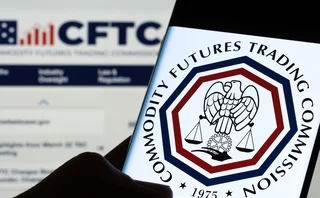
Pursuing alpha

Despite remaining unchanged since classical times, it seems the first two letters of the Greek alphabet are being reversed these days. At least that's what some leading international dealers are saying.
They reckon that certain popular structures such as constant maturity swap steepeners and range accruals, which were previously sold as yield-enhancing structures, are now so common that they represent market convention. That means they are no longer the alpha-generators of choice.
Today, they represent the market benchmark, effectively beta, dealers say. That's a strange concept given that each structure is different in terms of maturity, benchmark curve, leverage and so on.
Nevertheless, large dealers believe the new source of alpha comes from proprietary trading models, which are rules-based, established as indexes and sold to clients as structured products. By offering this new breed of so-called alpha-generating fixed-income products, dealers have apparently put themselves on a collision course with their hedge funds clients from which they make significant sums of money as trading counterparts, and to a lesser extent by acting as their prime brokers.
The argument goes that if a major bank can roll out proprietary trading models to its clients in a transparent manner, why would a customer pay the typical 2% asset-linked, 20% performance fees required by a black box hedge fund that, after all, could well be deploying exactly the same trading strategy? Sure, top hedge fund managers will probably outperform an algorithmic trading strategy, but there are hundreds of hedge funds that won't.
There is a loose analogy here with the early development of constant proportion debt obligations (CPDOs), which automatically had to roll their positions despite the market conditions not necessarily being optimal to do so. Now, the same dealers that are touting managed CPDOs as a solution to that problem - they say a skilled manager can optimise the market timing of the roll - are nonetheless offering systematic index trades that may or may not suffer as they revolve into the next period of the contract.
- Christopher Jeffery.
Only users who have a paid subscription or are part of a corporate subscription are able to print or copy content.
To access these options, along with all other subscription benefits, please contact info@risk.net or view our subscription options here: http://subscriptions.risk.net/subscribe
You are currently unable to print this content. Please contact info@risk.net to find out more.
You are currently unable to copy this content. Please contact info@risk.net to find out more.
Copyright Infopro Digital Limited. All rights reserved.
You may share this content using our article tools. Printing this content is for the sole use of the Authorised User (named subscriber), as outlined in our terms and conditions - https://www.infopro-insight.com/terms-conditions/insight-subscriptions/
If you would like to purchase additional rights please email info@risk.net
Copyright Infopro Digital Limited. All rights reserved.
You may share this content using our article tools. Copying this content is for the sole use of the Authorised User (named subscriber), as outlined in our terms and conditions - https://www.infopro-insight.com/terms-conditions/insight-subscriptions/
If you would like to purchase additional rights please email info@risk.net
More on Regulation
Industry calls for major rethink of Basel III rules
Isda AGM: Divergence on implementation suggests rules could be flawed, bankers say
Saudi Arabia poised to become clean netting jurisdiction
Isda AGM: Netting regulation awaiting final approvals from regulators
Japanese megabanks shun internal models as FRTB bites
Isda AGM: All in-scope banks opt for standardised approach to market risk; Nomura eyes IMA in 2025
CFTC chair backs easing of G-Sib surcharge in Basel endgame
Isda AGM: Fed’s proposed surcharge changes could hike client clearing cost by 80%
UK investment firms feeling the heat on prudential rules
Signs firms are falling behind FCA’s expectations on wind-down and liquidity risk management
The American way: a stress-test substitute for Basel’s IRRBB?
Bankers divided over new CCAR scenario designed to bridge supervisory gap exposed by SVB failure
Industry warns CFTC against rushing to regulate AI for trading
Vote on workplan pulled amid calls to avoid duplicating rules from other regulatory agencies
Bank of Communications moves early to meet TLAC requirements
China Construction Bank becomes last China G-Sib to release TLAC plans
Most read
- Top 10 operational risks for 2024
- Top 10 op risks: third parties stoke cyber risk
- Japanese megabanks shun internal models as FRTB bites







